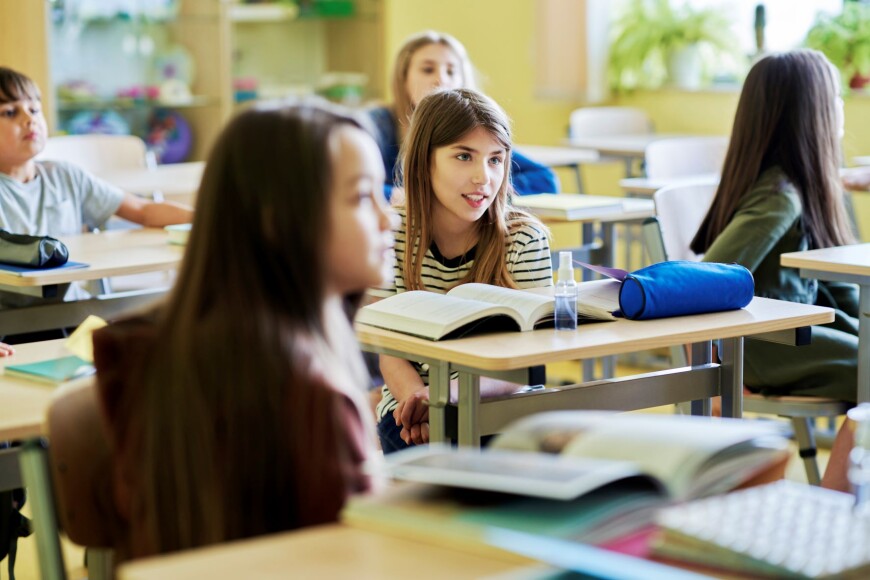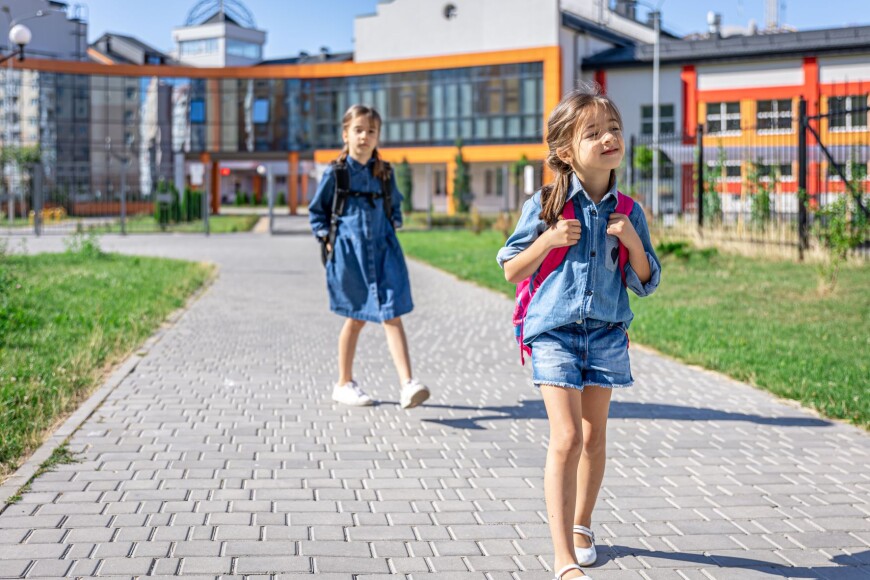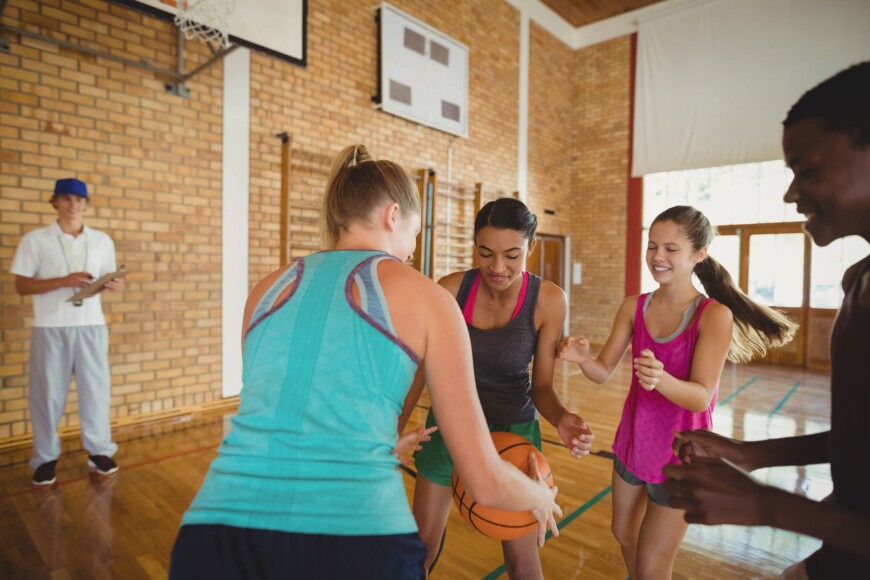What are the advantages of public and private schools, how is the education process organized and which steps does it consist of? Useful tips for those who buy a house in Turkey and plan to move to Turkey for permanent residence together with their children, and are therefore concerned about their studies, integration into society and further education. These and other questions will be answered in this article.
Schools in Turkey: Features, Pros, and Cons of the School System
When you are choosing a country for a permanent or long-term residence abroad, there are a lot of complexities and bureaucratic hurdles to overcome after the move. And if there are children in the family, the issue of schooling becomes one of the most important priorities!
In Turkey you will have no problem getting your children into an educational institution - there are many schools, some of them really famous and prestigious, and some ordinary ones without any special requirements for the level of education of the students.
The Turkish school system
In Turkey, the education system in its present form has been formed after a number of reforms, with the number of mandatory years of schooling gradually increasing until it is equal to the European standard of 12 years. Turkish school education is based on the formula 4+4+4.
It means that children attend primary school, called Ilkokul in Turkish, for 4 years, and secondary school, called ortaokul, for another 4 years. Senior high school, or lyceum (lise), takes the last 4 years.
Schools use a 100-point grading system, where 100 is the maximum grade.
There are public and private schools, so how do they difrent from each other?
Education in public institutions is free of charge.
The disadvantages of public schools are the high number of students in the classes (although the schools try to make sure that there are no more than 30 kids in a class, but sometimes 35-40) and the lack of free meals in the usual for many canteens format.
Children either go to a canteen where they can buy a sandwich and a drink, or bring their own food. Public schools also operate in two shifts, the first from 8am to 1pm and the second from 1.30pm to 6pm.
Private schools teach children only in one shift, the first shift, but the learning process itself is longer. So classes start at about 9 a.m. and end at 4.30 p.m.
On Mondays, schools have a sort of ruler: children sing the national anthem while the Turkish flag is raised.
Private schools provide two or three meals a day and there are interesting electives to choose from. They are naturally better equipped than state schools, with state-of-the-art chemistry, physics and biology classrooms that allow children to study science not only from books, but also in practice.
Special Schools in Turkey
There are educational institutions for this purpose in the country as well, but they are not very numerous. For the most part, they are located in big cities.
All schools for children with special needs are divided into several types: for pupils with hearing, vision and mental disabilities, as well as for those with limited mobility - those who use wheelchairs.
In these schools, children can combine study with accommodation, or they can simply attend classes.
Education curricula are adapted so that every child can develop his or her abilities and talents, and learn a profession, even if it is not too difficult, so that he or she can earn a living in the future.
Primary and Secondary School in Turkey
Children enter primary school at the age of six, which is compulsory and applies to all citizens of the country. To be more specific, the beginning of the school period in Turkey is counted by months.
If your child is 69 months old at the end of September, he or she is obliged to go to school. It is also possible for children aged 66-68 months to enter school with parental permission. At the request of parents it is also possible to postpone a year for Turkish children, for ages 69-71 months.
The school year starts in the 10th of September, with the exact date varying from year to year according to the date of the religious holiday of Kurban Bayram.
The school year is divided into two semesters, four months each, with a two-week holiday in between. At the end of the term, children are given average marks in their subjects, which are calculated on the basis of the results of tests, homework, behaviour - in principle, as elsewhere.
In primary school, they try not to overload children; they often give them creative assignments at home.
Children use pencils rather than pens to write, as it is considered easier to write beautiful handwriting, and they are not afraid to make mistakes and can always correct what they have written before they hand it in for checking.
Most homework is done with textbooks and workbooks which are paid for by the school. But uniforms for lessons and sports are bought by parents themselves.

Even at primary school level, there is a strong patriotic education in Turkey: pupils love their history and are proud of their heroes, so lessons are often dedicated to Ataturk and other famous personalities.
The school can be reached on foot or by school bus, which runs through the neighbourhood and picks up children near their homes, taking them back the same way after class.
It is very convenient, there is no need to worry about the child - in addition to the driver, there is another adult accompanying the child on the bus. There is a charge for the shuttle service, although it is not too expensive.
In general, public schools are well equipped: there are computer labs, projectors, grades are posted in electronic journals, so parents can monitor the progress of their children via the Internet.
But the situation with free clubs is not so good - they are available, but the choice is small, so many students additionally attend sports, art, science clubs outside school - of course, for a fee.
High School in Turkey
At the end of 8th grade, pupils have to take the LGS in order to enter a lyceum. The points obtained in the examination determine which upper secondary school the child will be able to attend. At this stage it is necessary to decide on the further course of study and the choice of upper secondary school.

General upper secondary school. Prepares students for university and at the end of secondary school you have to take the YGS and LYS exams. In the second year, students get to choose a specialization and study some subjects in greater depth.
Professional lyceums train professionals for work in tourism, medicine, teaching and even maritime industry. After studying in such a lyceum you may enter a university without having to take any examinations. Subject to good grades, of course.
Anatolian lyceums. They differ from the ordinary ones by the in-depth study of a foreign language. In addition to the usual English and German, children in Turkey may study Farsi, Korean, and other languages.
Lyceums with advanced study of sciences - chemistry, biology, mathematics, are called Fen Lisesi.
Private lyceums are colleges that are not easy to get into, they are very competitive and selective.
Some subjects are taught in foreign languages. Tuition costs start at EUR 4,000 for a year of study. The colleges have a lot of advantages - from the availability of a swimming pool on the territory to the possibility of training abroad.
If a student has an excellent academic record, he or she may apply for a grant to partially or fully cover the cost of his or her studies.
Religious high schools. In these, pupils focus on theology and the study of the Koran in addition to their core subjects.
In high school, the children's workload increases as they have to choose a subject area, i.e. the subjects in which their grades will determine their entry to university.
Many parents, who cannot afford expensive private schools, employ tutors for their children in particular subjects.
Even in the second year, if it is a subject-specific lyceum, practice begins. For example, for students in years 10 and 11 studying tourism, there is a summer practice in hotels - under adult supervision, of course, but with a certain amount of responsibility.

Schooling in Turkey for Foreigners
All children of foreigners with a residence permit have the right to study in public schools in Turkey for free. More interestingly, distance learning is even available to them, unlike Turkish citizens.
It is possible to live in Turkey and study remotely at a school in one's home country, if this is provided for by its legislation. Most other European countries do not have such privileges for foreigners.
There are international schools in Turkey: English, French, German, Ukrainian and Russian. The latter, for example, have two in Antalya, both private, located in different parts of the city.
There is also a Ukrainian Saturday school at the consulate. The Bereginya Volunteer School has recently opened - for the time being it is free of charge.
There is a Ukrainian lyceum named after Shevchenko in Istanbul and its pupils pass their final exams at the school for foreigners living abroad, MUSH.
Which School for Parents to Choose after Relocation in Turkey?
Should you send your child to a Turkish school or should you choose an English school? Or should the child continue at their current school, simply through the internet?
This is a decision only for you to make, but we can give advice from those who have already come this way:
If you associate your future and your children's future with Turkey, it is best to send them to a regular state school, especially when it comes to the primary grades.
Teachers here are stricter than in a private Turkish school, where they can turn a blind eye to absences and even failure, while in a public school the teacher will not let your child be lazy.
It is in the public schools' interests to have their students show excellent results and it is a common practice here to inflate the marks and it would be a shame to find out after the move to a higher school that the progress of your child was only on paper.
Before sending your child to a Turkish school, it is useful to apply for language courses for foreign children.
Another common option for permanent residents of Turkey is to send your child to a lower grade so that during the year he/she will be able to learn the language using a familiar curriculum.
At the beginning it will be a little bit hard for the pupil at school, of course, because the teachers won't make any special adjustments and slow down the pronunciation of words. But they won't make any special demands either: Children who speak Turkish badly are mostly given marks for written assignments, and they won't be asked too much at the lessons. And by the end of the school year the children have already quite good language skills and are able to do their homework themselves.
If you choose a private secondary school, prepare for serious costs. And not only for tuition, but also for tutors - the load in such schools is more, the requirements are stricter, and the demand from the children is higher. But studying in a prestigious private school gives you the opportunity to go to the same prestigious university in the future!

Attitudes towards children in Turkey
Generally speaking, children in Turkey are very warmly treated, so your child won't feel lonely in either public or private schools.
It is common here to respect the pupils, a teacher shouting at the children is nonsense. It is worth mentioning that in private schools, foreign children are assigned a mentor, who helps them to learn the language faster and to get used to the group.
Although in public institutions, a child without problems with socialization will quickly become familiar with a friendly attitude on the part of classmates and teachers.
Subscribe to our YouTube channel to keep up to date with the most useful and relevant information.
If you want to relocate to Antalya or buy property and enjoy life at the sea, you can contact us on WhatsApp +90 5374828423.

